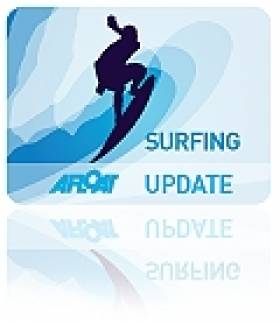Displaying items by tag: Irish Surf Film Festival
Ireland's First Surf Film Festival Comes To Smithfield
#Surfing - Ireland's first ever surfing themed film festival is set to take place in Dublin later this month.
The Shore Shots Irish Surf Film Festival 2013 will take over the Light House Cinema and Generator Hostel in Smithfield on the weekend of 23-24 March with the Irish premieres of five new big-screen surfing titles.
"We’ve got all the latest footage from the global surf scene, award-winning movies and tales of travel and adventure from men and women who have devoted their lives to exploring and sharing the water around us," say the organisers.
The festival kicks off with the premiere of Here & Now, the work of more than 25 filmmakers and surfers who worked together to document the world of surfing in a single 24-hour period.
It's followed the the first Irish showing of the epic 3D adventure Storm Surfers, a documentary following two best friends on their quest to hunt down and ride the biggest and most dangerous waves in Australia.
The second day will see showings of 180 South, which retraces the epic 1968 journey of Yvon Chouinard and Doug Tompkins to Patagonia; North of the Sun, documenting two surfers extreme experience throughout nine months of winter in a remote part of Norway; and Come Hell or High Water, which tells the remarkable history of bodysurfing.
Both days will also feature an exhibition of stunning surf photography captured by some of the best in the business, a short film competition - and a proper party atmosphere!
Find out more at the official festival website or the Shore Shots Facebook page.





























































